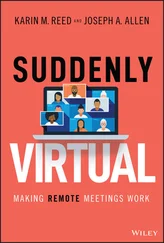“About me?”
“You were in a courtroom.”
“And I was found not guilty?” He is eager to know.
“You were very quiet, and you smiled every once in a while.”
“Irena!” he cries out.
“What?” She raised her voice, as though she had been caught in a regrettable error.
“Why did you light candles?”
“On a holiday it’s customary to light candles, isn’t it?”
“What holiday is it today?”
“Isn’t your return home a holiday?”
On Passover Irena sets the table for the holiday. Ernst is very moved.
“I would like to say the blessings,” he says, “but I don’t know the melodies.”
“It’s just nice to sit at a Passover table,” Irena says.
Strange , Ernst says to himself, Sabbaths and holidays brighten Irena’s face, but they only depress me. I must have inherited this depression from my father .
“My father didn’t like holidays,” he can’t resist telling her. “My mother would set the Passover table exactly the way it had been set in her parents’ house, but that meticulousness embarrassed my father. He would skip things when he read the Haggadah, close his eyes, and sink into himself. His separation from his father and mother apparently pained him, but he didn’t talk about it. Sometimes in the middle of the Seder he would rouse himself and start singing.
“In the Party everything was in a ferment. Our activities were festive and full of energy, and they took place in the fields, in barns, and on riverbanks. For obvious reasons we weren’t called the Communist Youth but, rather, the Progressive Culture Club.
“By the age of twelve we had already learned to hate religious Jews. We would watch the way they hurried to the synagogue, speaking to one another in whispers, trading merchandise or promissory notes. The young commissars explained to us that no act of the Jews was pure. Everything was done with cunning or deceit. Helping the poor didn’t count with them, only performing rituals.
“We were organized into sections. Each section was divided into squads, and each squad had five members. We were supposed to steal from the Jewish stores. We would distribute the stolen goods to the needy in the poor part of the neighborhood. The mission had to be planned well. We would watch the store owner for a few days and figure out the opening and closing times. We would choose stores that didn’t have thick grilles or bolted doors. We didn’t examine only the doors and windows but also the narrow openings to the basements. We quickly learned that even a narrow opening offered an excellent gap that we could wriggle through.
“Usually we succeeded, but if we were caught, the section leader would hold an inquiry. If it turned out there had been a flaw in the plan, they would put the squad leader on trial, and sometimes the whole squad. It was like the army, and sometimes more serious. We often broke down the door of a store, and to cover our tracks we would burn down the store after robbing it.
“The violence was accompanied by a feeling of justice. We weren’t stealing for ourselves, but for the poor. The stolen goods would be delivered to the poor neighborhood at night, and there we would distribute it according to a list.”
Irena listens. It’s hard for her to understand this tangled reasoning, but in her heart she feels that the flaws Ernst keeps talking about haven’t yet been corrected in his writing.
A few days after he returns from the hospital, Ernst begins to talk about his summer vacations with his grandparents in the Carpathians. They dressed in long smocks, just like the peasants, and they were attached heart and soul to the fields of grain and the orchards. That was before the Communists arrived and confused everyone. The Communist years erased, among other things, those splendid sights. Ernst saw marvelous things during his visits to the Carpathians. But exactly what he saw is hard for him to say now. He makes an effort to remember.
Several times Irena finds Ernst drunk and merry when she arrives in the morning. She fears his drunkenness, and because of it she stays longer in his house. In truth, she feels that she has to stay with him to watch over him.
On one of his drunken nights Ernst embraced Irena. “You are my light,” he said. “You brought me everything that was stolen from me.” Irena was stunned but not frightened. His big body felt solid but also had a great gentleness, and she felt his hands on her, and his breath.
When she returned home that night, Irena couldn’t sleep. She walked from room to room and finally sat down and read the diary of Etty Hillesum, a Dutch woman who had died in the Holocaust. In her young life she had known many men and also a powerful love of God. Love of God and love of people are the same thing, Irena decided, but then became alarmed by this thought.
ERNST’S SCHEDULE HAS CHANGED. HE SPENDS MOST OF the day at home and goes out to the café in the afternoon. He no longer issues his commands upon leaving the house. Irena is frightened by this restraint and worries that he might destroy his manuscripts himself. When Ernst returns from the café, supper is ready. After the meal Irena offers him a glass of grapefruit juice, or tea and cake. If Ernst accepts, she stays for a few minutes and then goes home.
Since Ernst’s injury, Irena has neglected her own house. Still, once a week she vacuums the carpets and washes the floor. When she’s finished with her errands, she sits at the table and reads a book. Sometimes she feels that her parents’ presence in the house has diminished in the past months, as if they have realized that she is now given over entirely to Ernst. It pains Irena that her parents have distanced themselves. Don’t worry , she heard her mother say one night, we’ve withdrawn because we don’t want to disturb your thoughts. We’re as close to you as ever. You don’t disturb me , she wanted to answer, but the words wouldn’t leave her mouth.
It’s pleasant for Irena to think about her parents. Her parents aren’t a memory for her, but a warm closeness. She tells them everything that her heart tells her. She doesn’t conceal feelings or thoughts from them, but since she started working for Ernst, her parents have been closing themselves off from her, as if they were embarrassed by their limited education. Now Irena tries to bring them back, to seat them in their usual places in the living room or the kitchen.
It is actually easy to bring them back. They now sit where they always sat. They don’t ask what or how, as they sometimes used to when they were still alive. They are intensely attentive. Everything that Irena tells them interests them, and it’s evident that they are content with the way she keeps the house.
She tells them what happened to Ernst, about the burglary and his injury. She wants to relate it all in an orderly way, and for a moment it seems to her that she can do it in an uninterrupted flood of words, but the words are able to form only a few sentences. She concludes by saying, Ernst told me about his time in the Communist youth movement .
The Communist youth movement was the worst , her parents say. They would burn holy books and synagogues. Didn’t we tell you that they tried twice to burn down the two synagogues of Zalachov? The synagogues were saved by Ukrainian peasants, who drove off the Communists .
And didn’t Hashomer Hatsa’ir burn holy books? Irena asks.
In Hashomer Hatsa’ir they held bonfires on Yom Kippur and wild parties, but they didn’t burn holy books .
Ernst regrets it now , Irena says, defending him.
And rightly so , her father says, rising from his seat. Irena knows that her father is unwilling to forgive those sins of Ernst’s youth. She had heard Ernst say more than once: We distressed our parents, who had done nothing wrong. They were honest people, hardworking, loyal to the faith of their fathers. Both in the ghetto and in the camps, they observed even the minor commandments .
Читать дальше












